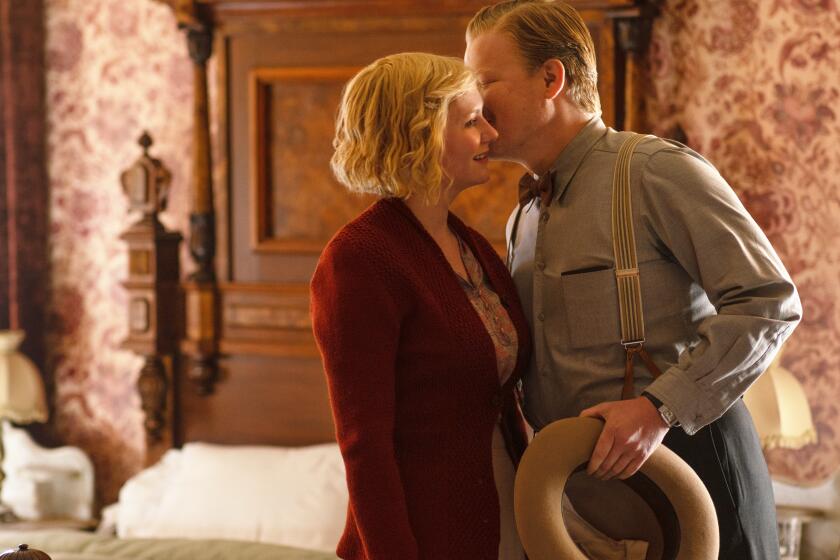- Share via
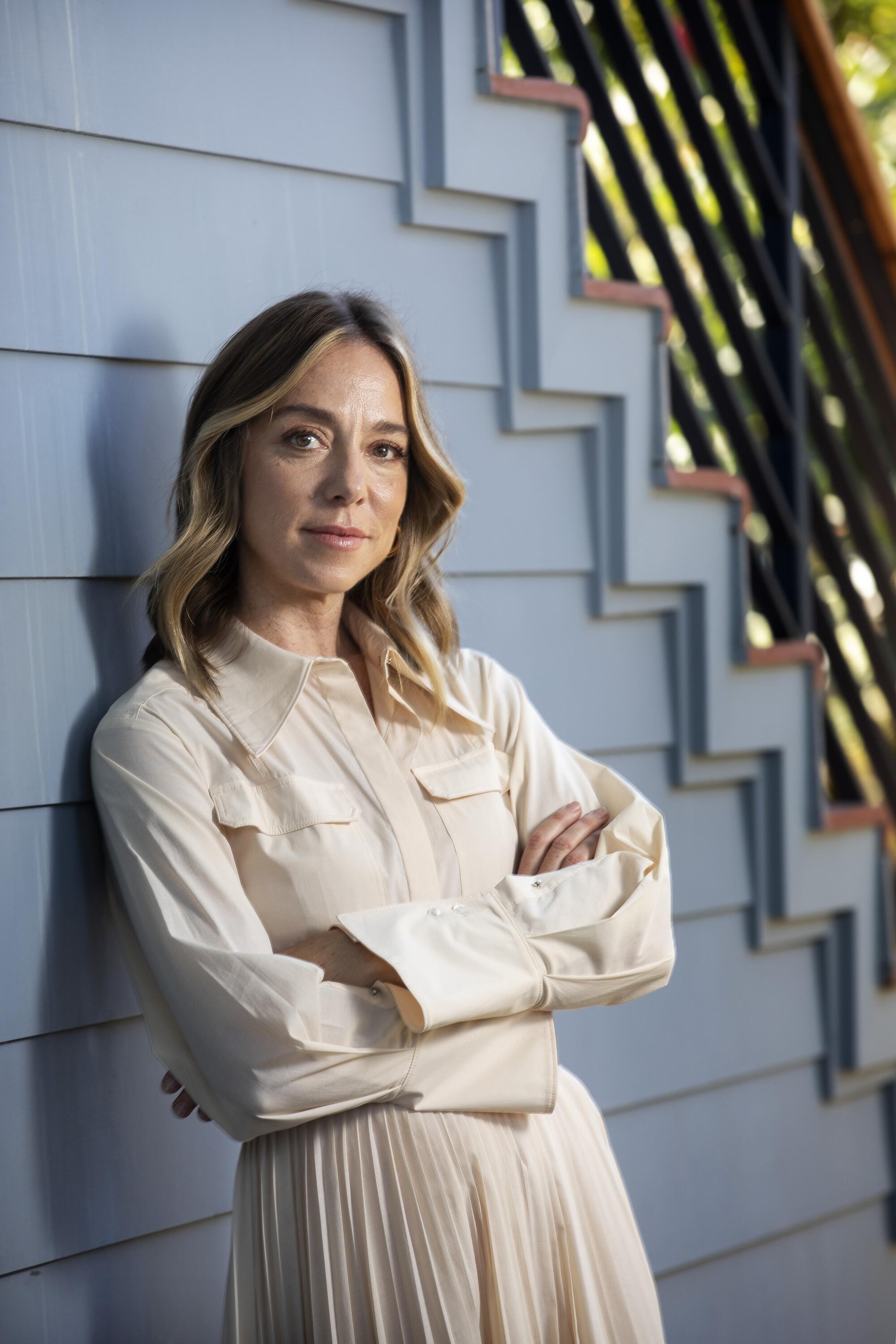
“CODA’s” win at the Producers Guild of America Awards on Sunday shoved “The Power of the Dog” out of top spot in the best picture race and an already gloriously unpredictable Oscar season into fifth gear. All those traditional whines and whimpers about how the guild and other pre-Oscar awards ruin everything with repetitious wins have been silenced. That breeze you just felt was caused by a hundred Oscar prognosticators throwing their hands in the air.
At this moment I don’t care who wins. Well, I do, but not as much as I care about one indisputable fact: Heading into Oscar week, the two best picture front-runners — “CODA” and “The Power of the Dog” — were made by writer-directors who also just happen to be women: Sian Heder wrote and directed “CODA,” Jane Campion, “Power of the Dog.”
Women directors, two of them! At the top of the prediction lists! Doubling the odds that for only the third time in Oscar history, a film directed by a woman will win best picture!
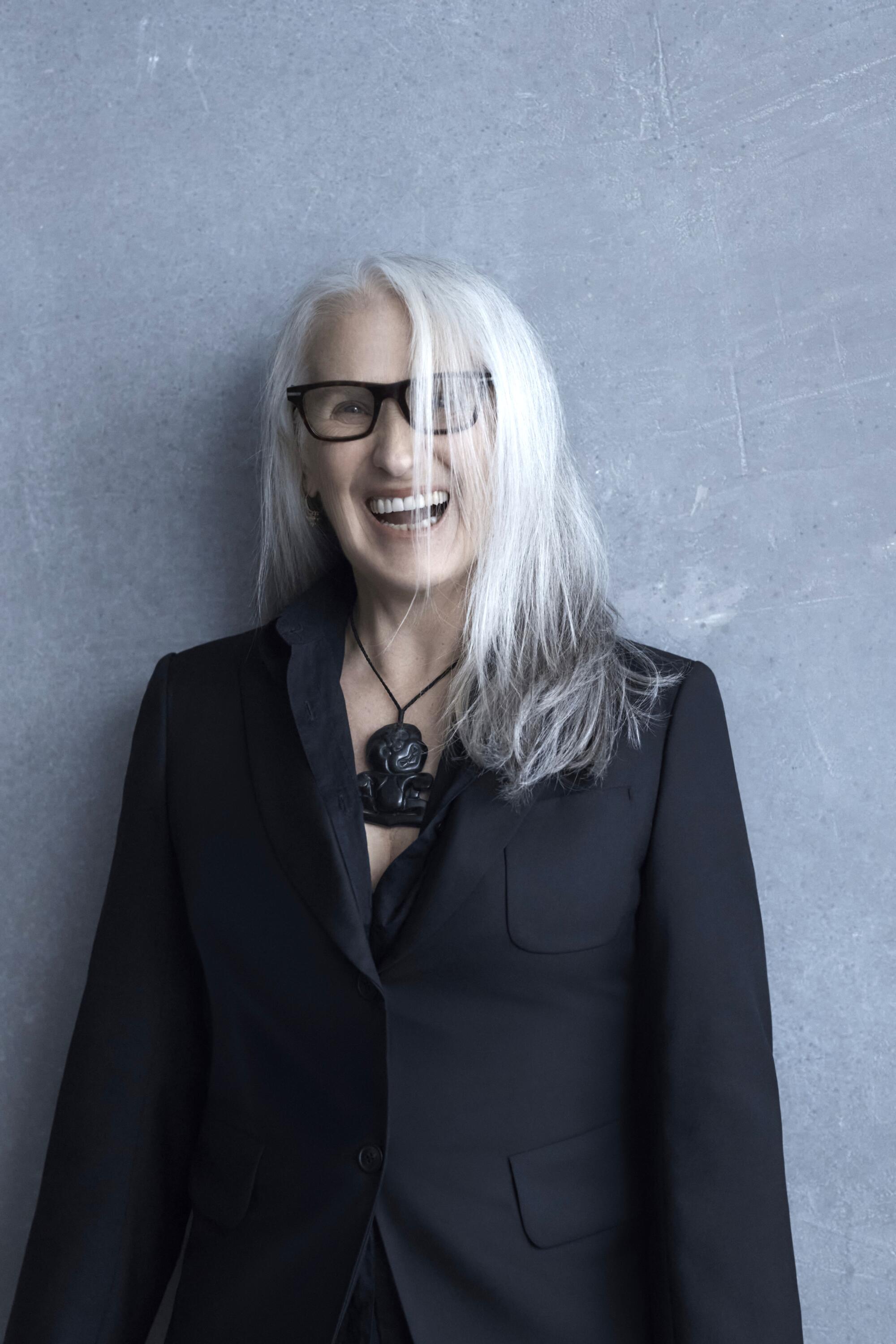
This has never happened before, perhaps because only 15 female directors have had films nominated for best picture. In 94 years, people. Fifteen. Spielberg alone has had 12; he’s good, but come on.
For the record, the first was Randa Haines with 1986’s “Children of a Lesser God.” Her female lead, Marlee Matlin, won best actress, becoming the first Deaf performer to be nominated for and to win an Oscar. Matlin costars in “CODA” with Troy Kotsur, the second Deaf performer to be nominated. If he wins, he will be the first Deaf man to do so. In case that influences any wagers.
But I digress.
There have only been 18 films directed by women up for best picture (Campion, Kathryn Bigelow and Greta Gerwig have had two), so it’s not terribly surprising that a list with two such films has been sighted only three previous years out of 94 (yes, it is that bad).
In 2009 Lone Scherfig’s “An Education” and Bigelow’s “Hurt Locker” were nominated; in 2010 Lisa Cholodenko’s “The Kids Are All Right” and Debra Granik’s “Winter’s Bone”; and 2021, Chloé Zhao’s “Nomadland” and Emerald Fennell’s “Promising Young Woman.”
“Hurt Locker” and especially “Nomadland” went into the final stretch favored to win, which they did. But this is the first year two female-led films seem tied as favorites.
Campion is also nominated for directing, and she and Heder are competing for adapted screenplay.
If the contrast in tone and type of previous pair-ups didn’t prove that women, like men, can take on any genre, of any size (and, given the continued dearth of female directors, I fear it did not), the exquisite variety of Campion and Heder’s films certainly should.
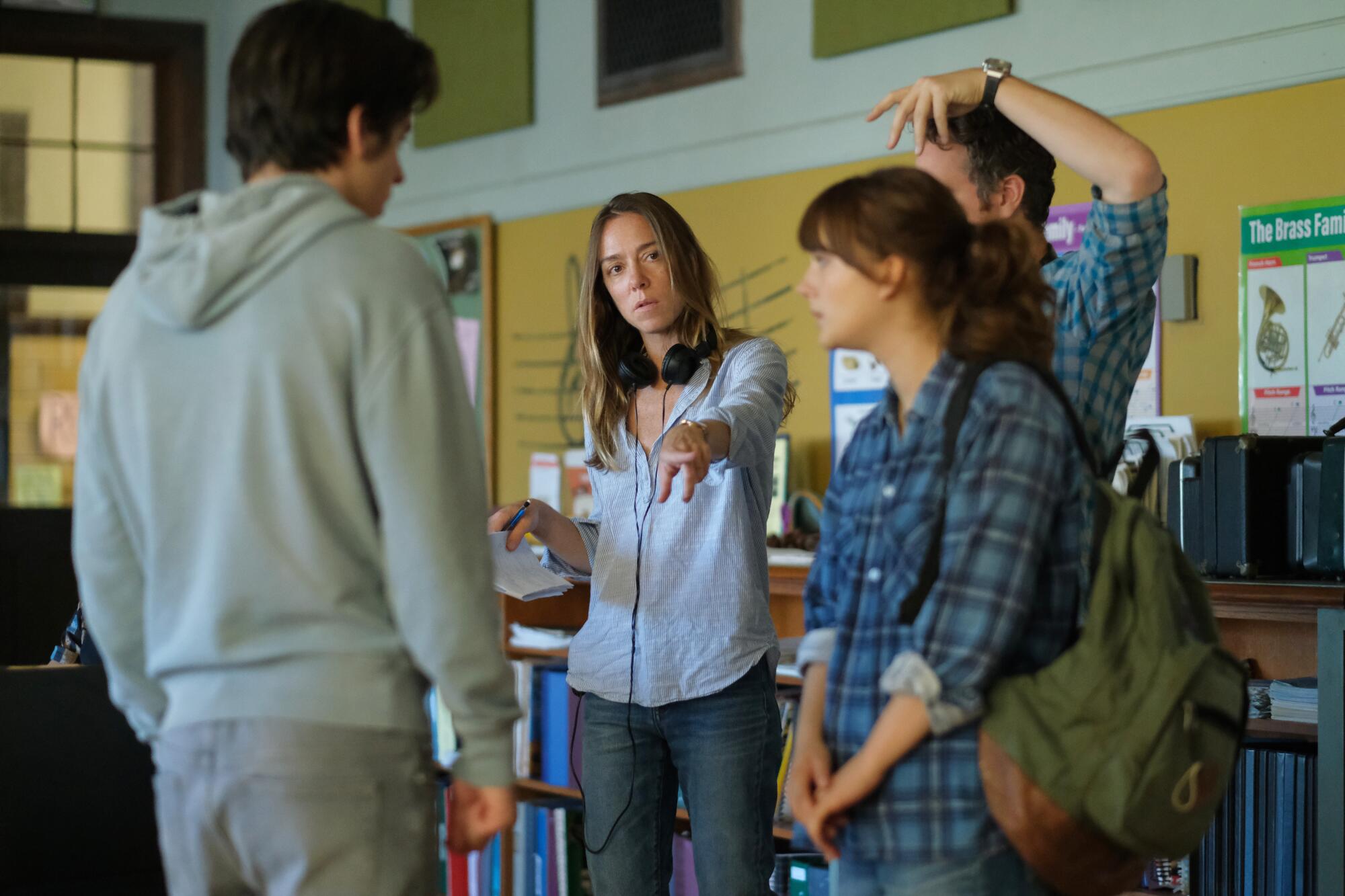
“The Power of the Dog” is a western epic that examines the cascade of damage inflicted by a culture of hyper-masculinity with the limpid, dispassionate gaze of a Montana sky (or a ruthless young medical student). “CODA” is a tear-jerking tale of a young woman trying to break out of familial confines without hurting the ones she dearly loves that offers up its tender heart on a platter.
Sweeping versus intimate; cool versus warm; head versus heart — it could very well come down to which of these the voting members of the academy preferred this year as much as any other factor in an undeniably subjective, and more than occasionally political, event.
In a race that is also seeing some last-minute seesaws, Campion is favored to win best director. She is the first woman ever to be nominated in that category twice. It would be her first win and mark the first time in those 94 years (yes, I am going to keep mentioning the number because it’s a lot) that women have won back to back in that category, and only the third time a woman has won it at all.
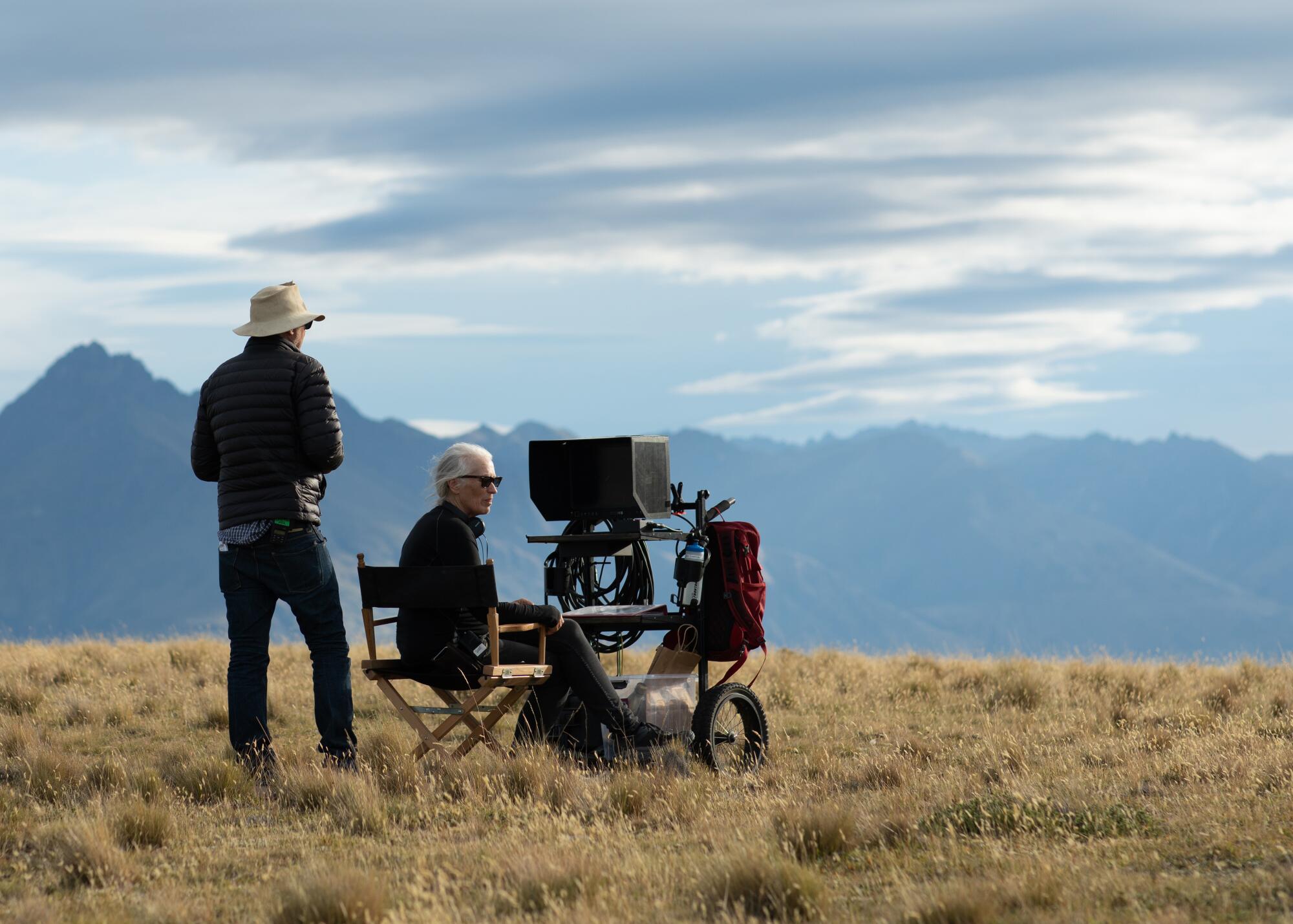
Both Campion and Heder are white, as are all but two (Zhao and Ava DuVernay) of the 15 women who directed best picture nominees. The gender gap in the directing category and, indeed, film’s directing ranks, has been one of the industry’s most obvious and pernicious inequities — women may hold up slightly more than half the sky, but in 2021, they directed only 17% of the 250 top-grossing films, down from 18% in 2020, according to the Center for the Study of Women in Film and Television at San Diego State University. For the top 100 films, the number dropped from 16% in 2020 to 12% in 2021.
Which is one reason to take a minute to pause in delighted satisfaction over the notion that “CODA” and “The Power of the Dog” are duking it out on all those prediction lists.
Given the topsy-turvy nature of the race and the complicated voting process, it is quite possible that neither will win — critics, including our own Justin Chang, have come out in favor of “Drive My Car”; there have been whispers of a “Belfast” or “King Richard” upset, and virtually every nominee has its champions.
As a catalyst for growth, however, the win is not as important as the nomination. In its best years, the Oscar nominations reflect an ever-widening definition of excellence in film, celebrating all the disparate stories and people who achieve them. The presence of female directors on the best picture and other nomination lists, including animation and documentary feature, is not the solution to the larger problem of gender disparity. But the Oscars is, at its root, a PSA for movie-making, beckoning viewers to the world of movie-making. Not just as an audience for the telecast and the films, but also as potential members of the industry itself.
We all want to win an Oscar, but some of us actually want to enter the professions that would make this possible. When we see people who look and sound like us being honored and awarded for their work, it cracks open the future, makes more things seem possible to a wider group of people. Just as no one type of film should immediately be considered best, no one type of filmmaker (and I include every form of craft that goes into making a film) should be the default image of success.
Whether you watch them or not, whether you’ve seen the movies or not, the Oscars are important because they help define what sort of films will get made next — what sorts of stories will be considered important, what sorts of people will be considered good enough risks to tell them.
Will it be “The Power of the Dog”? “Drive My Car”? “Dune”? Our picks for the top prizes on Oscar night.
Controversy over the telecast and fear of a dwindling audience for it aside, this is a good year for the Oscars. You may, as I do, have quibbles over who made each nominations list and who didn’t, but overall, the nominated films are gorgeously diverse in tone and tale.
And there is a pretty good chance that for a second year in a row, and only the third time in 94 years, the best picture winner will have been directed by a woman.
Or, you know, not.
Either way, it’s worth watching to find out.
More to Read
The biggest entertainment stories
Get our big stories about Hollywood, film, television, music, arts, culture and more right in your inbox as soon as they publish.
You may occasionally receive promotional content from the Los Angeles Times.
